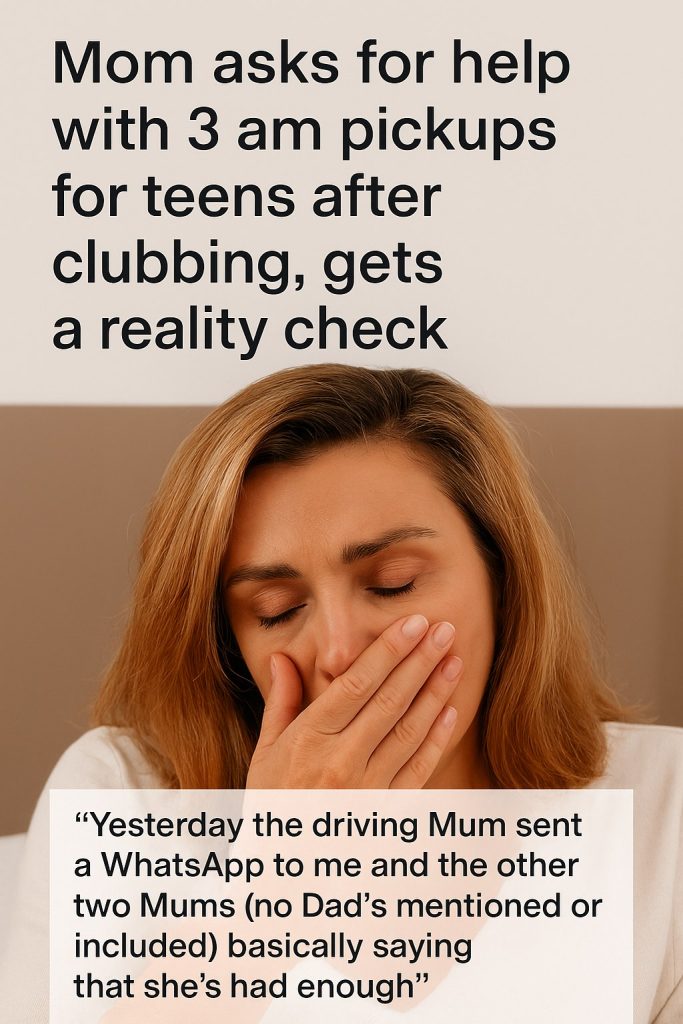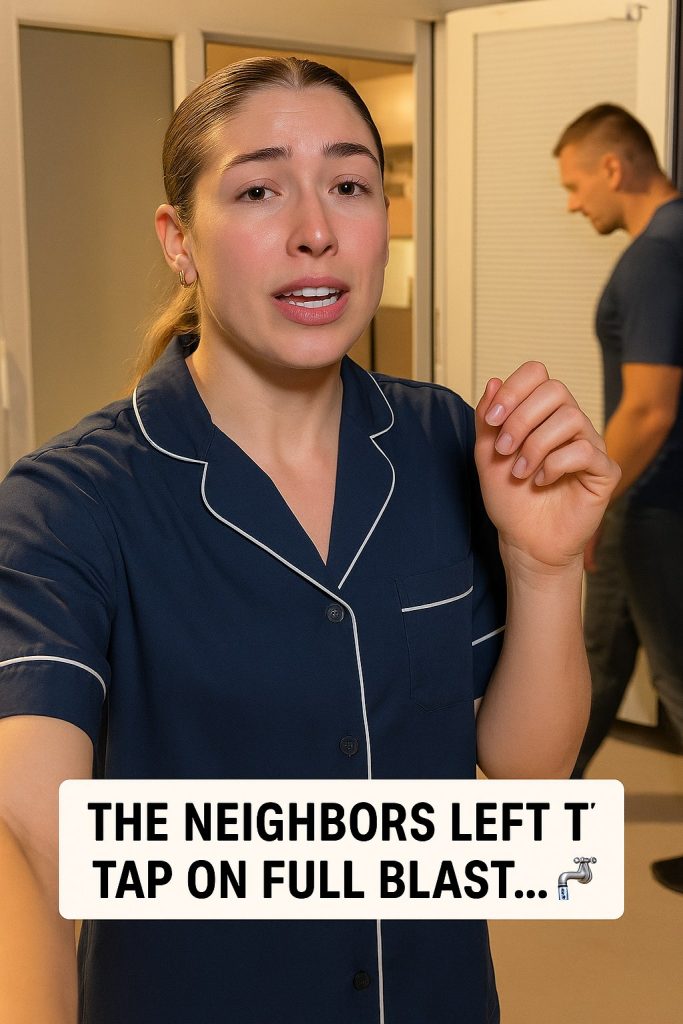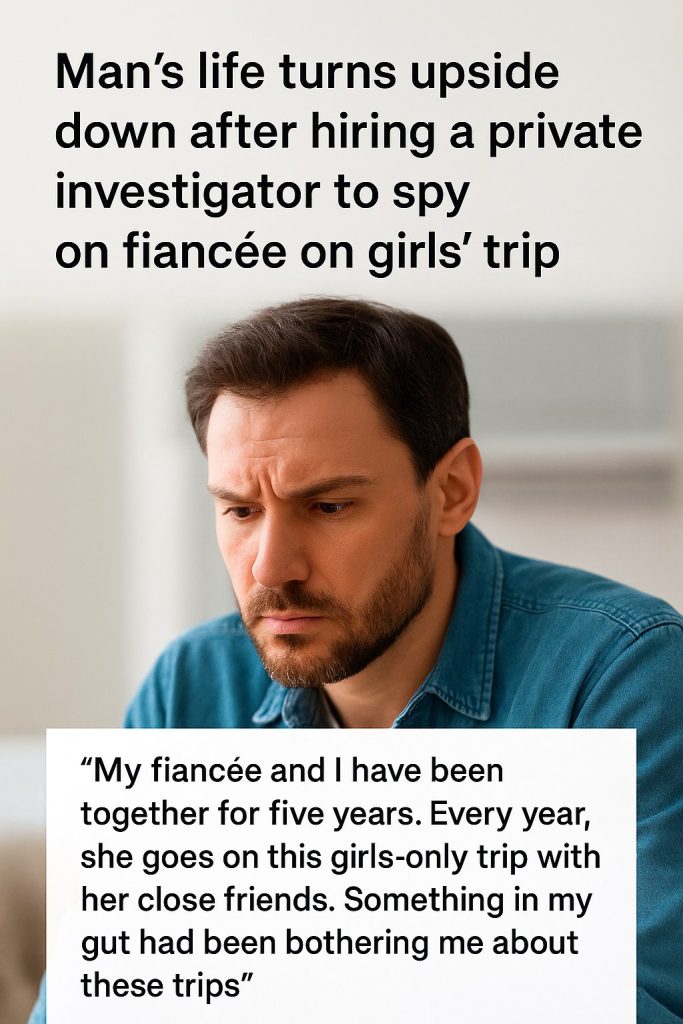A recent social media story has captured attention nationwide after a mother’s request for help in picking up her teenager at 3 a.m. following a night of clubbing stirred a surprising reaction online. What began as a simple WhatsApp message among parents quickly turned into a viral conversation about parenting, responsibility, and the limits of community support.
The mother, who is a regular driver among a group of local parents, sent a detailed message in a WhatsApp group containing other mums and dads. She asked if anyone could assist with late-night pickups for her teens after they had been out clubbing, highlighting that her own schedule made the 3 a.m. drive especially difficult. “Yesterday the driving mum sent a WhatsApp to me and the other two mums,” read an excerpt shared on social media, providing the initial spark for the story’s widespread attention.
Parents’ reactions were swift and divided. Some expressed sympathy, understanding the exhaustion and logistical challenges of managing teenagers with late-night social lives. Many parents acknowledged the strain such requests place on a tightly knit community already juggling work, family responsibilities, and their personal time.
However, others were far less supportive, suggesting that expecting fellow parents to take turns driving teens home in the early hours was unreasonable and potentially unsafe. Several commenters emphasized that clubbing at such a late hour raises questions about the teenagers’ independence and the parents’ approach to supervision. One popular viewpoint asserted that it is ultimately the responsibility of the parents whose children are out late to arrange transport rather than relying on others in the community.
The issue touches on broader societal conversations about teenage freedom, parental responsibility, and community boundaries. In modern urban settings, many parents form informal support networks to share school runs, extracurricular activities, or social event transportation. Yet, this story revealed that there may be an unspoken line when it comes to late-night pickups after nightlife outings.
Experts on parenting and youth culture note that as teens seek greater autonomy, parental cooperation becomes vital—but it has limits. Dr. Elaine Matthews, a family behavior specialist, explains: “When teens stay out late, especially at clubs, it introduces risks and pressures that do not apply to earlier activities. Parents must weigh not only logistical considerations but also safety, legal issues, and the messages they send about limits and expectations.”
Meanwhile, social media users engaged in a debate over whether such requests foster community spirit or lead to burnout and resentment among parents. The conversation also touched on the balancing act parents face between supporting their children’s social lives and maintaining sensible boundaries for their own wellbeing.
This viral moment serves as a reality check on a modern parenting dilemma: How much can communities share before individual responsibility is compromised? While many expressed a desire to support each other, they also highlighted the need for clear communication and respect for personal limits.
For now, the mother’s message remains a symbol of the challenges many families face navigating teenage independence and modern social norms. The story continues to resonate not only because of the specifics of the 3 a.m. pickups but also due to the relatable tensions between cooperation and self-care that every parent grapples with.



